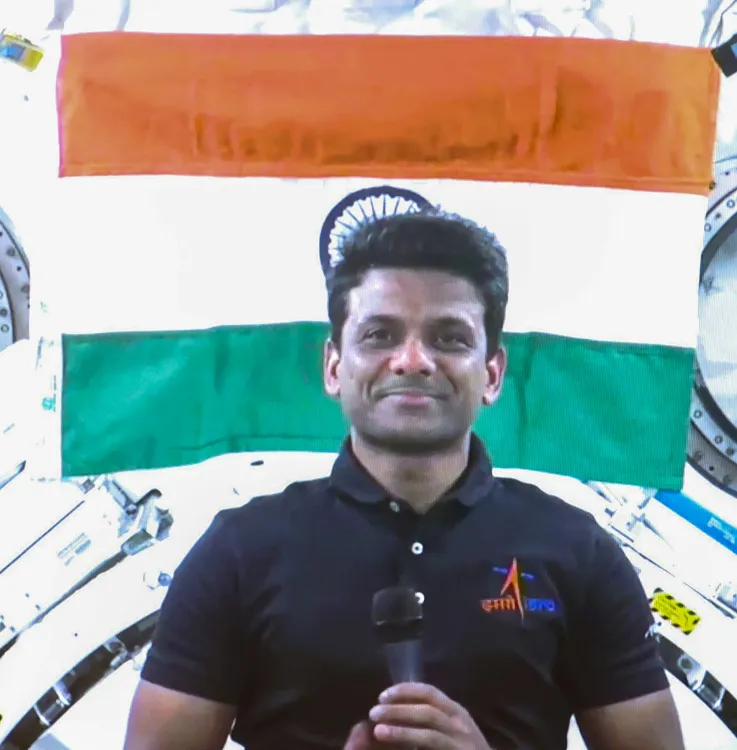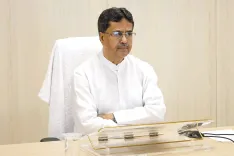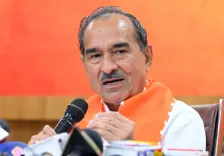What Insights Did Shubhanshu Shukla Share About Life in Space with Students?

Synopsis
Key Takeaways
- Shubhanshu Shukla is the first Indian astronaut on the ISS.
- Astronauts eat pre-packaged meals for nutrition.
- Sleeping in space requires astronauts to secure themselves to avoid drifting.
- Mental health is supported through technology that connects astronauts to loved ones.
- India, through ISRO, has contributed significant studies to the Axiom-4 mission.
New Delhi, July 3 (NationPress) Shubhanshu Shukla, the first Indian astronaut aboard the International Space Station (ISS), engaged in captivating discussions with students across India on Thursday. These inquisitive learners posed questions about the dietary habits of astronauts, the sleeping arrangements in space, and the protocols for dealing with illness in a microgravity environment.
The students were particularly curious about the advantages of space exploration and what aspects of the journey Shukla found most thrilling.
During this enlightening session, Shukla characterized the launch experience of the Axiom Mission 4 as "incredible" and "dynamic".
“It’s quite entertaining because in space, there’s neither a floor nor a ceiling. If you were to visit the station (ISS), you might see someone napping on the walls and another on the ceiling,” he shared with enthusiasm.
Regarding astronaut meals, the Lucknow native explained that most of the food is pre-packaged, ensuring that astronauts receive adequate nutrition. "Various food options are available for tasting, and astronauts select their favorites, which are then packed for their journey," Shukla elaborated.
When queried about the protocol for medical emergencies in space, Shukla explained: "It's easy to float and secure yourself to the ceiling, but the real challenge lies in staying in the same spot where you slept overnight. We must tie our sleeping bags to avoid drifting away while we rest.”
On the topic of mental health in space, Shukla emphasized that modern technology allows astronauts to maintain connections with family and friends, which significantly aids their well-being. "It makes a big difference," he noted.
Shukla also discussed how the weightlessness of space impacts digestion, stating: “My body has adapted to microgravity, but upon returning to Earth, I will need to readjust to gravity. This presents its own set of challenges.”
Currently, Shukla is focused on developing a brain-computer interface within the orbital lab, as reported by NASA on Thursday.
He is part of a 14-day scientific mission on the ISS, collaborating with three other astronauts from the US, Poland, and Hungary.
The team is conducting approximately 60 scientific investigations and commercial activities in microgravity, representing a total of 31 countries, including the US, India, Poland, Hungary, Saudi Arabia, Brazil, Nigeria, the UAE, and various European nations.
Through ISRO, India has contributed seven meticulously chosen studies to this mission.







